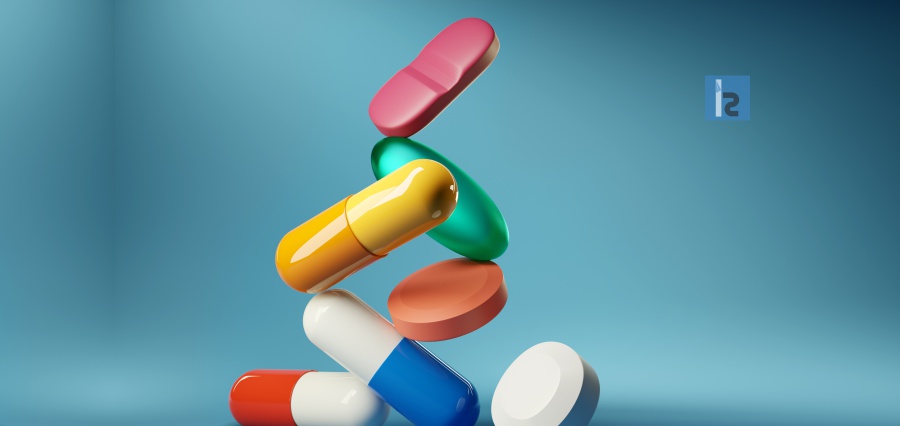The COVID-19 pandemic had a wide range of effects on the pharmaceutical industry, including delaying routine therapies, putting a strain on healthcare budgets, delaying drug production for diseases other than COVID and disrupting supply chains. To meet the challenges faced by the pandemic, the pharmaceutical industry was forced to embrace a variety of digital technologies.
Technologies like cloud computing and cybersecurity have aided the industry in adopting remote working and conducting decentralised clinical trials. Before investing in new technology, companies must incorporate emerging technologies based on their business needs and create a solid digital transformation plan.
According to Statista – As of May 7, 2021, there were 1,177 drugs and vaccines in development targeting the coronavirus disease (COVID-19). American company ImmunoPrecise Antibodies and UK-based GlaxoSmithKline were ranked second among companies worldwide each with nine drugs/vaccines in development targeting COVID-19.
GlobalData provides us information about technologies like cloud computing and cybersecurity have aided the industry in adopting remote working and conducting decentralised clinical trials. Before investing in new technology, companies must incorporate emerging technologies based on their business needs and create a solid digital transformation plan.
Some have donated compounds that could treat coronavirus for emergency use and clinical trials, including those that were previously tested on other viral pathogens including Ebola and HIV. Others are looking at how they can use existing technology to quickly scale up development once a vaccine candidate has been found. Pharmaceutical firms have a wealth of scientific expertise gleaned from decades of dealing with viruses of a similar nature. Companies are looking at vaccine candidates and conducting inventories of research portfolio libraries in order to find new R&D therapies.
There are various pharmaceutical companies in the world that are treating and developing the vaccine which are:
- AbbVie:
AbbVie is a member of the COVID R&D Alliance and the Accelerating COVID-19 Therapeutic Interventions and Vaccines (ACTIV) collaboration. Both partnerships are looking at Abbvie medicines. They are also working on antibody discovery and have formed a research partnership with Harvard University to study and create novel therapies for emerging viral infections.
- Boehringer Ingelheim
In close collaboration with academic researchers, foreign institutions, and others in the pharmaceutical industry, Boehringer Ingelheim quickly established the areas of expertise where they would better contribute to developing COVID-19 therapies.
- Johnson & Johnson:
Johnson & Johnson is a reknowned pharmaceutical company. J&J is working to classify current or new compounds with antiviral activity against COVID-19 in collaboration with the Rega Institute for Medical Research at the University of Leuven (Belgium).
- Pfizer:
Pfizer is testing an antiviral compound – a so-called “protease inhibitor” discovered by Pfizer scientists in 2003, as a COVID-19 drug. The capacity of the virus to replicate is disrupted by this possible therapy. Pfizer also laid out a concise five-point strategy to combat COVID-19. The initiative includes a pledge to share its drug development and regulatory experience with other smaller biotech companies looking to test compounds or existing therapies for action against the virus that causes COVID-19.
- Takeda:
The CoVIg-19 Plasma Alliance, which includes Takeda and several other firms, is currently performing a phase 3 trial of an anti-coronavirus immunoglobulin (ITAC).
The trial will look at the protection, tolerability, and efficacy of an investigational anti-coronavirus hyperimmune intravenous immunoglobulin (H-Ig) medicine for treating COVID-19 disease in hospitalised adults.
- AstraZeneca:
AstraZeneca is conducting a Phase 3 trial with the National Institute of Health Research (NIHR) to look at monoclonal antibodies as a treatment for COVID-19. The research is one of two national priority trials focusing on the treatment of two AZD7442 investigational antibodies.
- Eli Lilly:
Eli Lilly and AbCellera collaborated on the creation of an antibody for the treatment and prevention of COVID-19, which has now been approved by the FDA for the treatment of newly diagnosed COVID-19.
- GSK:
GSK is a member of the COVID-19 Therapeutics Accelerator, a joint research initiative. They’re still working with Vir Biotechnology to create new dual-action monoclonal antibodies, and they are looking at their own marketed pharmaceuticals and drugs in progress to see whether any of them may be used in the pandemic.
- MSD:
MSD is advancing the production and manufacturing of two investigational therapeutics: a novel immune modulator candidate and a novel antiviral candidate developed in partnership with Ridgeback Bio.
- Novartis:
Novartis is a participant in the COVID-19 Therapeutics Accelerator, a joint research project led by the Bill & Melinda Gates Foundation, Wellcome, and Mastercard, as well as a COVID-19-focused collaboration organised by the Innovative Medicines Initiative.
- Roche:
In the case of COVID-19, Roche is looking at its current portfolio. It has announced the start of many clinical trials and is also gathering and compiling data from other, independently led clinical trials around the world, as well as collaborating with other companies and research organisations.
– Ashish Chandgude


